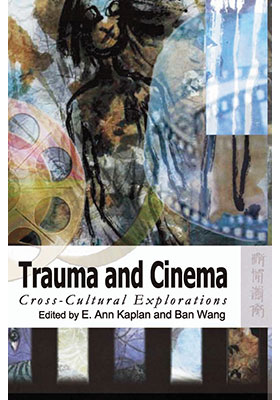Trauma and Cinema
Cross-Cultural Explorations
(創傷與電影:跨文化探索)
ISBN : 978-962-209-624-0
February 2004
304 pages, 6″ x 9″
Ebooks
This volume addresses the relation of trauma to transnational modern mass media. The first of its kind, Trauma and Cinema: Cross-Cultural Explorations provides ten essays which explore the ways trauma works itself out as media—in images in (and as) film, photography, and video—in global cultural flows. The focus of our volume on the matrix of trauma, visual media and modernity seeks to engage and go beyond current tendencies in trauma studies. The book discusses how trauma presented in the media spills over national boundaries and can be found in images across divergent cultures in Africa, Asia, Australia, Europe and America. From the Holocaust to the Chinese Cultural Revolution, from Taiwan’s colonial experience to the catastrophe of Hiroshima, from attempted annihilation of Australian Aborigines to attempted reconciliation in South Africa, these essays offer the reader a plethora of images of trauma for comparison and contrast.
“This path-finding volume makes good on the promise implicit in its title: it describes a range of new cinematic and visual forms that have emerged in the context of historical trauma in a variety of national settings, and it strives to define the specific styles that can best come to grips with events that are sometimes considered unrepresentable. The careful analysis of individual texts and the informed and reflective commentary on theories of trauma and modes of representation will have a major impact on emerging scholarship.” —Robert J. Burgoyne, Professor of English, Wayne State University, author of Film Nation: Hollywood Looks at U.S. History
“Trauma and Cinema: Cross-Cultural Explorations is an exciting breakthrough in the burgeoning field of trauma studies. The provocative, original, and stimulating essays collected here pioneer attention to the historical and local differences in trauma. In this way, they resist the treatment of trauma as something abstract, because trauma is by definition that which is horrible and shocking beyond representation. They further reconfigure the field by casting a global focus on trauma. Including essays on Japan, China, Taiwan, and South Africa as well as Europe and America, they overthrow the privileging of white experiences of trauma that skewed the field in its early stages.” —Chris Berry, Associate Professor of Film Studies, University of California, Berkeley



